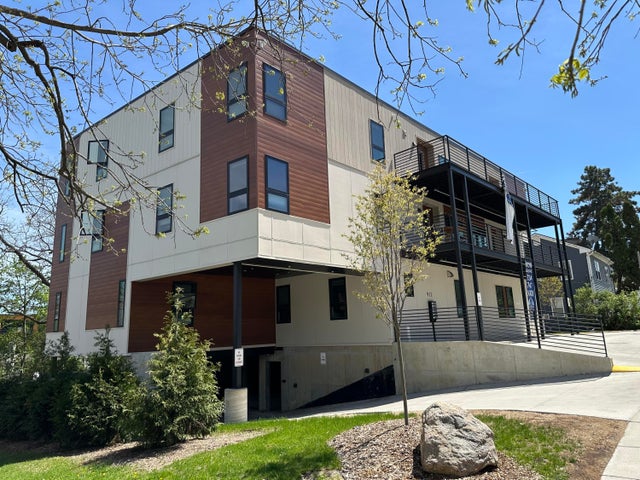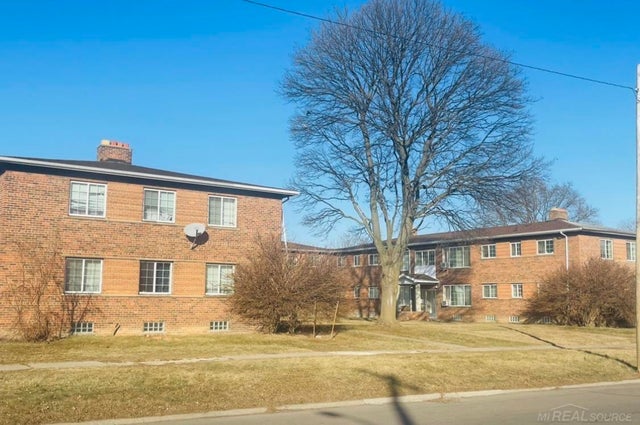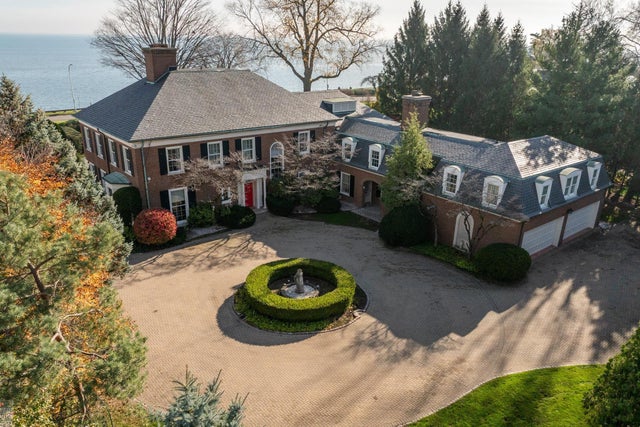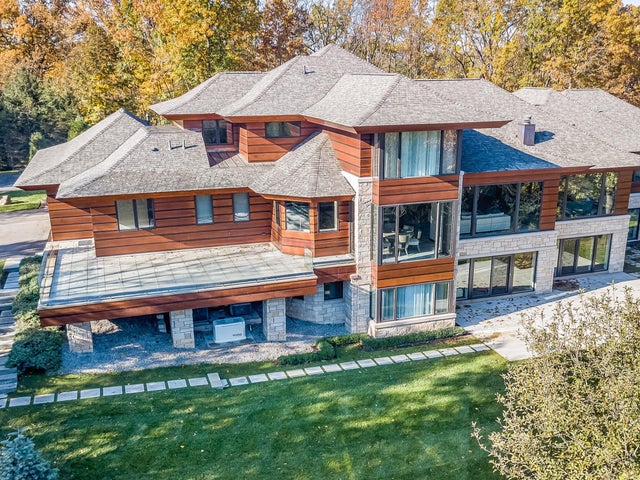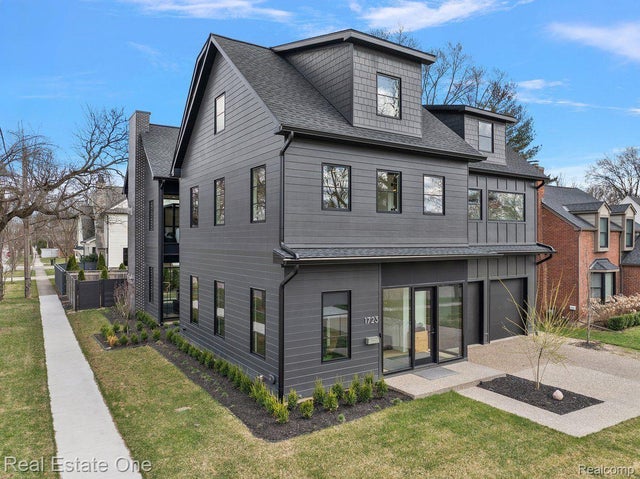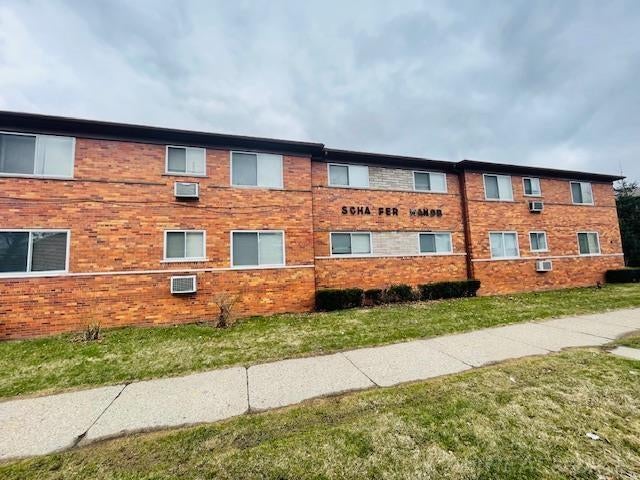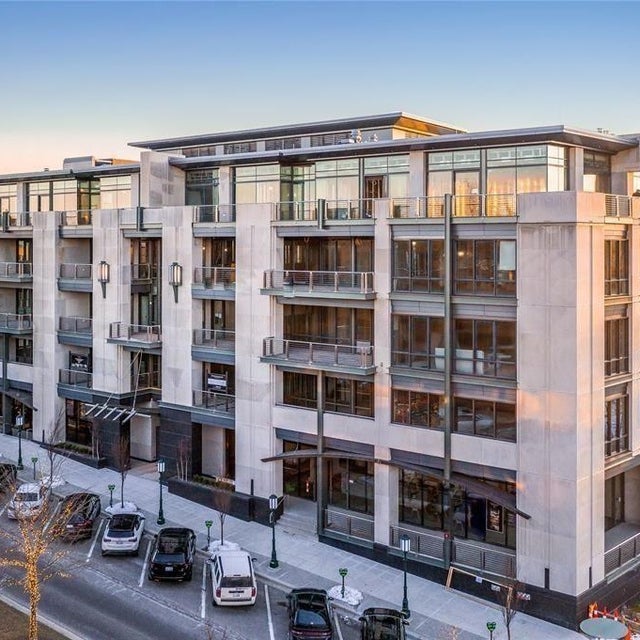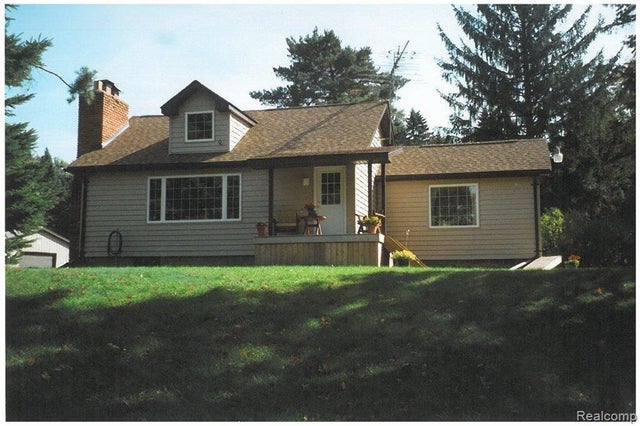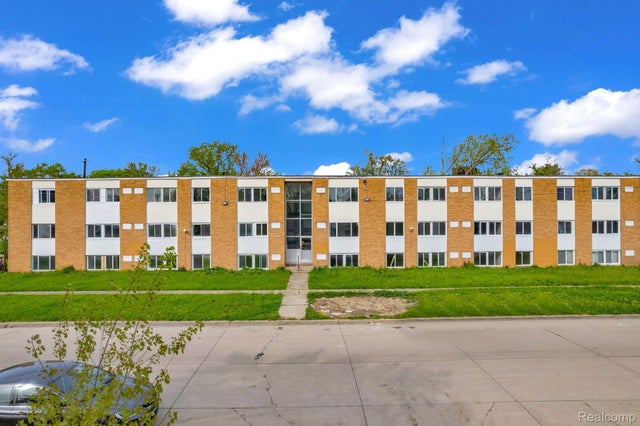Introduction: If you’ve been following the Metro Detroit real estate market, you might be scratching your head at the latest news. In March, home sales across Metro Detroit fell by about 14% compared to a year ago. Fewer people are buying homes right now – yet paradoxically, home prices are still rising. The median sale price in the region jumped roughly 6% year-over-year in March (to about $323,950). What’s going on here? In this article, we’ll break down the trends behind the numbers, from Detroit housing trends in each county to the factors driving prices up. We’ll also share some neighborly advice for homebuyers and sellers navigating these economic shifts (like rising interest rates and inflation). By the end, you’ll understand why prices keep climbing, and get practical tips on how to make the most of the current market. Let’s dive in!

Metro Detroit Real Estate Market: Sales Down, Prices Up
The spring Metro Detroit real estate market is a tale of two metrics: sales volume is down, but prices are up. According to the latest RE/MAX of Southeastern Michigan report, overall home sales in Metro Detroit were 14% lower this March than in March 2024. Economic jitters have made some would-be buyers pause – local experts partly blame factors like recent tariff news and general uncertainty for shaking consumer confidence. At the same time, home prices keep climbing because demand still exceeds the supply of homes for sale. In fact, the median home price in our region rose about 6% from a year ago. For context, nationally home prices rose only ~3% in early 2025, so Metro Detroit’s price growth is outpacing the U.S. average.
Why aren’t prices falling in step with sales? A big reason is low inventory – there just aren’t enough homes on the market to meet buyer demand. Fewer sales doesn’t necessarily mean lack of interest; it can mean lack of available houses. Many homeowners are staying put (especially those who locked in low mortgage rates in years past). In fact, baby boomers hold a huge share of home equity and have been reluctant to sell, which limits the number of listings. New listings in Metro Detroit this spring are down by double digits compared to last year, so buyers are competing for a smaller pool of homes. This supply shortage props up home prices, even when sales slow down.
Meanwhile, mortgage rates remain relatively high – hovering around 6.5% for a 30-year loan in early 2025 – which has priced some buyers out and cooled the frenzy of bidding wars. (The silver lining: economists predict rates might dip toward 6% later this year if economic uncertainty continues, potentially giving buyers a bit more breathing room.) So, we have a bit of a standoff: buyers are cautious due to higher rates and prices, but sellers are also scarce, keeping prices buoyant. Now, let’s zoom in on how this dynamic is playing out in different parts of Metro Detroit.
Detroit Housing Trends: A County-by-County Breakdown
Metro Detroit’s real estate scene isn’t monolithic – housing trends vary by county (and even city). Here’s a quick look at how home sales and prices shifted in March for Oakland, Wayne, Detroit (city), Macomb, and Livingston:
- Oakland County: This popular suburban area saw the steepest sales decline. Home sales fell about 20% (735 homes sold in Mar 2025 vs. 925 a year prior). However, home prices in Oakland County still inched up ~4%, with the median price around $369,900 (up from $355,000 last year). Oakland’s relatively high prices (the second-highest in the region) are holding firm, a sign that buyers are willing to pay a premium in sought-after communities. Homes here even sold a tad faster than last year (by about one day on average), indicating that well-priced listings get snapped up.
- Wayne County (excluding Detroit): Wayne County overall saw sales drop roughly 15% (1,050 sales vs. 1,244 last year). Despite fewer transactions, prices ticked up ~3% to a median of about $180,000. This median is the lowest among the counties (since it includes many affordable neighborhoods), but values are still creeping upward. Notably, days on market was almost flat (houses sold in about the same time as last year), suggesting a balanced scenario: buyers are cautious, but well-priced homes will sell.
- Detroit (City): The city of Detroit is a unique sub-market within Wayne County. The number of Detroit home sales dipped about 11% year-over-year (393 homes sold vs. 442 last March). Yet prices in Detroit surged – the median sales price jumped 13.3%, from $75,000 to about $85,000. That’s one of the biggest price increases in the country for a major city. (In fact, Detroit is near the top of the list of U.S. metros with the fastest-rising prices.) Keep in mind Detroit’s home values are starting from a relatively low base, so even with double-digit growth, the city remains highly affordable compared to suburbs. It also means investors and first-time buyers are actively purchasing in the city, driving up prices on limited inventory.
- Macomb County: Macomb had a gentler slowdown. Sales were down only 6% (585 this year vs. 623 last year) – a smaller drop than the regional average. Meanwhile, prices jumped about 8.6%, with the median reaching $278,000 (up from $256,000). Macomb County homes remain moderately priced (lower than Oakland’s, higher than Wayne’s), which attracts a lot of middle-class families and first-time buyers. Even with fewer sales, demand is high enough to keep pushing prices up. Many Macomb County homes for sale still get multiple offers, especially in cities like Sterling Heights and Clinton Township. If you’re browsing Macomb County homes for sale, expect to act fast when a good listing pops up – homes sold about 6 days quicker on average this March than last year.
- Livingston County: Livingston was the one bright spot with sales actually up year-over-year. This smaller, outer-suburb county saw a 9.4% increase in sales (140 homes vs. 128 last March). And it led on price growth too: the median price soared 11.6% to about $417,250, the highest median price in Metro Detroit. Livingston’s popularity is growing, perhaps as buyers who are priced out of Oakland look a bit further out for larger homes or more land. Do note, however, that homes in Livingston took much longer to sell on average (over a month more days on market than a year ago). This could mean some higher-priced rural listings are lingering. Still, the county’s overall trend is more sales and higher prices, a sign of strong demand even as interest rates rise.
Across the board, every Metro Detroit area saw higher home prices in March – even where sales dipped. Oakland and Wayne (including Detroit) had the sharpest drop in number of deals, while Macomb and Livingston were more resilient. But no region saw prices decline. This underscores a key theme: demand is outstripping supply in Southeast Michigan, so prices are staying strong or climbing. Next, let’s explore why this is happening and what it means moving forward.
.png)
Why Are Metro Detroit Home Prices Still Climbing?
It seems counter-intuitive that prices are rising when sales are falling. Typically, you’d expect slowing sales to cool prices – so why isn’t that happening in Metro Detroit? Several factors are at play:
- Low Inventory of Homes: The number of houses on the market remains near historic lows. Many homeowners are hesitant to sell right now – some because they refinanced into ultra-low mortgage rates a couple years ago and don’t want to give that up, others because they’re unsure where they’d move next in this tight market. New construction has also lagged behind demand for years. The result: buyers outnumber sellers. There aren’t enough homes for sale to meet demand, which drives up competition for the listings that do hit the market. Even with buyer demand softening a bit due to high rates, the supply is so limited that prices keep getting bid upward. Essentially, scarcity is propping up home values.
- Steady Demand (Despite Economic Jitters): Metro Detroit’s housing demand, while not as frenzied as during the pandemic boom, is still solid. Families looking for more space, first-time buyers eager to stop renting, and people relocating for jobs or life changes still need homes. The region’s relatively affordable prices (compared to coastal markets) actually make it a magnet – for instance, remote workers or investors see Metro Detroit real estate as a bargain. Plus, the local economy – including the auto industry – has been stable, supporting consumer interest. Even with some buyers pausing due to recession talk or tariff concerns, many others are proceeding (albeit more cautiously). This underlying demand keeps pressure under prices. Notably, Midwest markets like Detroit are seeing some of the fastest price growth in the nation right now, because they started more affordable and people are moving toward affordability.
- High but Easing Mortgage Rates: The spike in mortgage rates over the past year (from ~3% in 2021 to ~6-7% in 2023) definitely sidelined some buyers. But lately rates have stabilized around the mid-6% range and even ticked down slightly. Buyers and sellers are adjusting their expectations to this “new normal” of rates in the 6’s. Crucially, if inflation continues to cool, we might see rates dip closer to 6% or even below later in 2025. The possibility of lower rates is encouraging some buyers to start shopping now – they intend to “marry the house, date the rate,” meaning buy the home they love now and plan to refinance the mortgage if and when rates drop. Additionally, today’s buyers are often more financially qualified (due to strict lending standards), so those who remain in the market can actually afford the higher monthly payments – they just have to budget for it. All of this means demand hasn’t collapsed; it’s just a bit restrained. And as soon as rates show any sustained decline, we can expect a surge of buyers rushing back in, which could push prices even higher.
- Strong Economy & Wage Growth: Southeast Michigan’s job market has been improving, and wages have risen in many sectors. While no one likes higher prices, many buyers have higher incomes now than a couple years ago, helping them handle larger mortgage payments. And with unemployment relatively low, people feel more secure in making big purchases like a house. Plus, inflation in other areas (like gas prices) has eased from its 2022 peak, freeing up a bit of household budget. All these economic factors provide a floor under housing demand. When people have jobs and savings, they tend to view real estate as a good investment, even in uncertain times.
- Psychology and “FOMO”: There’s also a psychological element. Home price expectations in Metro Detroit have shifted – after seeing prices climb for the last few years, many buyers believe prices will keep rising (at least in the near term). This creates a fear of missing out (FOMO). Some buyers are jumping in now to beat potential price increases later this year. On the seller side, homeowners see their neighbors’ homes selling for record highs, which encourages them to hold out for high prices too. No one wants to feel like they sold too low or bought at the peak. This mindset can sustain a hot price environment longer than pure supply-demand numbers might suggest.
In short, Metro Detroit’s rising home prices can be attributed to a classic case of high demand meets low supply, sprinkled with a dose of economic resilience. Until we either build more homes or more owners decide to sell, this dynamic likely won’t change. For buyers, it means you’ll need to get creative and strategic. For sellers, it means opportunity – but you still have to be smart about it. Let’s turn to some tips to help navigate this landscape.
Tips for Metro Detroit Homebuyers: Navigating a Tight Market
Are you house-hunting in Metro Detroit right now? Buyer patience and savvy are key in this climate of high prices and higher rates. Here are some tips to improve your odds of success:
- Get Pre-Approved (and Know Your Budget): Before you even start touring homes, talk to a lender and get pre-approved for a mortgage at the current rates. This will tell you exactly how much house you can afford and lock in a rate for a while. Given interest rates are in the 6% range, you might qualify for a bit less than you would have at 3%, so it’s crucial to be clear on your budget. A pre-approval letter also shows sellers that you’re a serious, qualified buyer – which can give you an edge if there are multiple offers.
- Be Ready to Move Fast: With limited inventory, the best homes (those in good condition and priced right) can still sell within days. If you find a house you love, be prepared to make an offer quickly – sometimes on the same day as your showing. This doesn’t mean rushing into something you’re unsure about, but do your homework upfront. For example, decide which neighborhoods you like, and have your agent set up alerts for new listings. When a listing pops up that meets your criteria, go see it ASAP. Being decisive and responsive can make the difference between getting the house or losing out.
- Consider a Wider Search: In a tight market, it helps to stay flexible. You might widen your home search beyond your first-choice city or county to find better deals. For instance, if Royal Oak or Ferndale prices are too steep, you could explore Madison Heights or downriver communities – you may find more affordable options with less competition. Also consider different property types: perhaps a townhome or a fixer-upper single-family home instead of something turnkey. A home that needs a little TLC could be a chance to buy at a lower price and build equity through renovations. Similarly, new construction homes or developments slightly farther out (where builders are offering promotions) might be worth a look if resale inventory is scant.
- Work with a Knowledgeable Local Agent: In this market, having a savvy Metro Detroit real estate agent on your side is more important than ever. A great agent will know exactly what comparable homes are selling for in the area, so you don’t overpay. They can advise you on writing a competitive offer – for example, whether to include an escalation clause (to beat other bids by a small margin) or if the seller might help with closing costs. Agents often hear of listings before they hit the public market, giving you a sneak peek at opportunities. They’ll also guide you through tricky parts like inspection and appraisal in a high-price environment. Lean on their expertise; it can save you money and stress.
- Be Patient and Don’t Skip Due Diligence: It’s easy to feel pressure to grab a home quickly when inventory is low, but remember that this is a huge purchase. Don’t skip the home inspection or overlook red flags just because you’re anxious to buy. If a house isn’t the right fit, be willing to walk away – new listings come on the market every week. Also, understand that buying in a high-rate environment doesn’t mean you’re stuck forever: you can refinance later if rates drop. It’s okay if it takes a few months to find the right home. The key is to stay patient yet prepared. Monitor the market and Detroit housing trends (your agent can send updates). Being informed will help you recognize a fair deal when one comes along. And when it does, you’ll be ready to pounce with confidence.
.png)
Tips for Metro Detroit Home Sellers: Making the Most of the Market
If you’re looking to sell your home in Metro Detroit, conditions are in your favor – but that doesn’t mean you can slack off. Fewer sales happening means buyers are pickier, even though prices are high. Here’s how to attract the best offer in this market:
- Price Your Home Realistically: Yes, home prices are up, but overpricing can still backfire. Today’s buyers are very educated; they will know if your listing is clearly overpriced relative to recent comps. If you list too high, your home could sit on the market longer than it should, and you might end up needing a price reduction (which can make buyers wonder if something’s wrong with the house). Work with your real estate agent to review comparable sales in your neighborhood from the last few months. List at a price that’s aggressive but fair – this will draw in more buyers and could even spark a bidding war in an undersupplied market. Remember, a correctly priced home will often sell quickly and for top dollar (sometimes above asking), whereas an overpriced home will languish.
- Make Your Home Shine: With buyers having limited choices, they will flock to a home that checks all the boxes. Take the time to prepare your home for sale – this means declutter, clean thoroughly, and consider staging key rooms to make them look inviting and spacious. Take care of that minor fix or paint touch-up you’ve been postponing. First impressions matter: boost your curb appeal with some fresh landscaping or at least a tidy lawn. Many Metro Detroit buyers are families or professionals who don’t want a project; a move-in ready home can command a premium. Also ensure you have high-quality photos (and even a video or 3D tour) in your listing, since most buyers will see your home online first. Investing a little effort and money upfront can easily earn you thousands more on your sale.
- Leverage the Seller’s Market – But Be Flexible: Right now, inventory is so low that as a seller you might receive multiple offers, maybe even above your asking price. Use that to your advantage: you can potentially negotiate favorable terms like a quick closing or few contingencies. However, keep in mind the pool of buyers is a bit smaller than, say, two years ago. If your first weekend on the market doesn’t bring a frenzy of offers, don’t be discouraged – the buyers who are out there are serious, just cautious. Be open to negotiations such as helping with a buyer’s closing costs or being patient with financing timelines. If a buyer offers slightly below your asking but has no contingencies and is pre-approved, that could be a solid deal in this environment. The bottom line: you likely have the upper hand, but staying flexible will ensure you don’t miss a good buyer.
- Plan Your Next Move: One reason many homeowners aren’t selling is the understandable fear: “If I sell, where will I go?” As a seller, especially if you need to buy another home locally, plan this out early. You might negotiate a lease-back from your buyer (where you rent your sold home for a month or two while you house-hunt). Or consider moving into a short-term rental if needed. Also, when you become a buyer, remember all the tips above will apply to you! If you’re moving out of Metro Detroit or downsizing, you’re in an easier spot – just make sure to line up your next home or rental so you’re not caught scrambling. Having a clear plan will make your sale much smoother and less stressful. The good news is, thanks to your home’s appreciation, you’ll likely have a nice chunk of equity to put toward your next step.
- Work with an Expert Realtor: Just as buyers need good agents, sellers benefit from experienced realtors too. An agent who knows your local market (whether it’s home prices in Oakland County or the best features to highlight in your Macomb neighborhood) can maximize your sale price. They’ll handle marketing, screen potential buyers, and advise on which offers are strongest – it’s not always the highest offer if that buyer has shaky financing. In a market with economic uncertainty, you want an agent who has seen various cycles, so they can navigate things like appraisal issues (e.g., if your high sale price doesn’t match the appraiser’s valuation) or inspection negotiations. Their guidance can help you net the most money with the least hassle. Ultimately, selling your home is a team effort – team up with a pro and you’ll be more likely to hit a home run sale.
Ready to Dive In? Next Steps for Buyers and Sellers
The Metro Detroit housing market is always evolving, and right now it’s presenting a mix of challenges and opportunities. Falling sales numbers might sound alarming, but as we’ve seen, rising prices indicate that our market is still plenty strong. Whether you’re a buyer or a seller, the key is to stay informed and adapt your strategy to current conditions. Real estate is hyper-local – even within Metro Detroit, what’s happening in one suburb can differ from the next – so arm yourself with data (like the trends we covered above) and good advice.
If you’re thinking about buying a home, make sure you’re prepared: get your financing in order, know what you want, and be ready to act when you find the right fit. Don’t let the headlines scare you off; opportunity exists if you’re diligent. And if you’re considering selling your home, this could be an excellent time to make a move, as buyers are out there and they’re paying top dollar for well-presented homes. Just be sure to have your next step planned.
In either case, one of the best moves you can make is to consult a local real estate expert. Having a knowledgeable neighbor/realtor who understands Metro Detroit’s neighborhoods and market quirks can make all the difference. They can provide a personalized game plan whether you aim to buy, sell, or even invest.
Don’t navigate this market alone! If you have questions about your specific situation or you’re ready to jump in, reach out to a trusted Metro Detroit real estate professional for guidance. Explore the latest home listings in the Detroit area to get a feel for what’s available and at what price points. Knowledge is power – and now you’re equipped with an overview of what’s happening and why. Get out there and make your move in the Metro Detroit real estate market, and capitalize on these trends to achieve your home goals. Who knows? You could be the next success story in this dynamic housing market. Good luck, and happy house-hunting (or selling)!
DON'T KEEP US A SECRET - SHARE WITH A FRIEND OR ON SOCIAL MEDIA!











